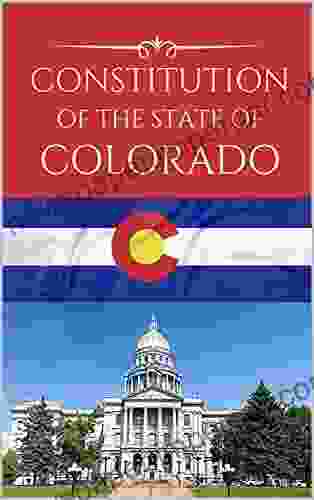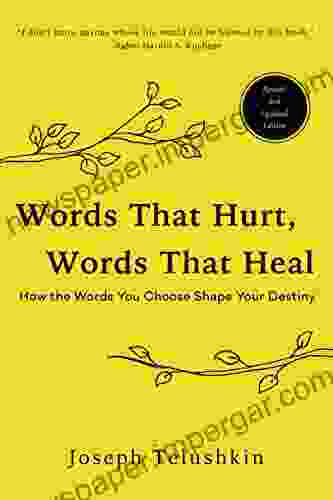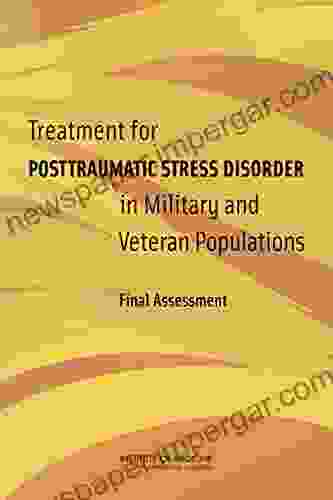Unlocking Hope and Healing: Essential Guide to Treating PTSD in Military and Veteran Populations

Posttraumatic stress disFree Download (PTSD) is a debilitating condition that affects millions of military personnel and veterans worldwide. Exposure to traumatic events during combat or military service can trigger symptoms that significantly impact their lives, families, and communities. The severity and persistence of PTSD can vary widely, from manageable to severely disabling. However, with timely and effective treatment, individuals with PTSD can regain control over their lives and achieve recovery. This article provides a comprehensive overview of evidence-based treatments for PTSD in military and veteran populations, empowering them to access the support they deserve.
PTSD is a mental health condition that develops after experiencing or witnessing a life-threatening event. Military personnel and veterans are at an increased risk due to their exposure to combat, violence, and other traumatic experiences. Symptoms of PTSD can manifest in several ways, including:
- Intrusive memories and nightmares
- Avoidance of reminders of the traumatic event
- Emotional numbing and lack of interest in activities
- Increased arousal and hypervigilance
- Difficulty concentrating and sleeping
Left untreated, PTSD can lead to a range of negative consequences, including social isolation, unemployment, strained relationships, and physical health problems.
5 out of 5
| Language | : | English |
| File size | : | 2581 KB |
| Text-to-Speech | : | Enabled |
| Enhanced typesetting | : | Enabled |
| Print length | : | 423 pages |
Recovery from PTSD is possible with the right treatment approach. Military and veteran populations have unique needs and preferences, requiring tailored interventions that address the specific challenges they face. Evidence-based treatments for PTSD in this population include:
- Cognitive Processing Therapy (CPT): This therapy helps individuals identify and challenge distorted thoughts and beliefs related to the traumatic event.
- Prolonged Exposure Therapy (PE): This therapy involves gradual and controlled exposure to memories, thoughts, and situations related to the trauma.
- Eye Movement Desensitization and Reprocessing (EMDR): This therapy uses eye movements or other bilateral stimulation to reduce the intensity of disturbing memories and beliefs.
- Selective Serotonin Reuptake Inhibitors (SSRIs): These medications help regulate serotonin levels in the brain, improving mood and reducing anxiety.
- Serotonin-Norepinephrine Reuptake Inhibitors (SNRIs): These medications have similar effects as SSRIs but may be more effective for sleep-related symptoms of PTSD.
- Pregabalin: This medication reduces nerve pain and anxiety, providing relief from some PTSD symptoms.
- Mindfulness-Based Interventions: These practices, such as mindfulness meditation and yoga, help individuals develop awareness and regulation of their thoughts and emotions.
- Animal-Assisted Therapy: Interaction with therapy animals can provide emotional support and reduce stress levels.
- Virtual Reality Therapy: This technology-based approach recreates traumatic experiences in a safe and controlled environment, allowing for gradual exposure and coping.
The choice of treatment depends on individual needs, preferences, and the severity of PTSD symptoms. It's essential to consult with a mental health professional who specializes in trauma treatment to determine the most appropriate approach. The following factors may influence the treatment decision:
- Type and intensity of traumatic experiences
- Severity and persistence of PTSD symptoms
- Co-occurring mental health conditions
- Medication history and effectiveness
- Personal preferences and cultural factors
Military personnel and veterans have access to a range of treatment options through the Department of Veterans Affairs (VA) and other military healthcare systems. These options include:
- VA Medical Centers: Provide comprehensive medical, mental health, and rehabilitation services, including PTSD treatment.
- Community-Based Outpatient Clinics (CBOCs): Offer mental health services in community settings closer to veterans' homes.
- Vet Centers: Provide counseling, group therapy, and other support services specifically for veterans.
- Private Healthcare Providers: Many private mental health professionals offer specialized PTSD treatment services.
Despite the availability of treatment options, some military personnel and veterans face barriers to accessing care. Stigma, lack of awareness, and difficulty locating appropriate services can prevent individuals from seeking the help they need. To overcome these barriers:
- Educate Yourself: Learn about PTSD, its symptoms, and available treatments.
- Reach Out for Support: Contact a mental health professional or veteran organization for guidance and referrals.
- Advocate for Your Needs: Inform healthcare providers about your military service and advocate for access to trauma-focused treatment.
- Connect with Veteran Support Groups: Join organizations like the National Veterans Foundation or the Military Free Download of the Purple Heart for support and information.
Treatment for PTSD in military and veteran populations is essential for their recovery, well-being, and quality of life. Evidence-based interventions, including trauma-focused psychotherapy, medication, and complementary therapies, offer effective ways to address symptoms and promote healing. Overcoming barriers to treatment requires education, support, and advocacy. By accessing appropriate services and engaging in the right treatment, military personnel and veterans can regain control over their lives, heal from the wounds of trauma, and rebuild their futures.
5 out of 5
| Language | : | English |
| File size | : | 2581 KB |
| Text-to-Speech | : | Enabled |
| Enhanced typesetting | : | Enabled |
| Print length | : | 423 pages |
Do you want to contribute by writing guest posts on this blog?
Please contact us and send us a resume of previous articles that you have written.
 Book
Book Novel
Novel Page
Page Chapter
Chapter Text
Text Story
Story Genre
Genre Reader
Reader Library
Library Paperback
Paperback E-book
E-book Magazine
Magazine Newspaper
Newspaper Paragraph
Paragraph Sentence
Sentence Bookmark
Bookmark Shelf
Shelf Glossary
Glossary Bibliography
Bibliography Foreword
Foreword Preface
Preface Synopsis
Synopsis Annotation
Annotation Footnote
Footnote Manuscript
Manuscript Scroll
Scroll Codex
Codex Tome
Tome Bestseller
Bestseller Classics
Classics Library card
Library card Narrative
Narrative Biography
Biography Autobiography
Autobiography Memoir
Memoir Reference
Reference Encyclopedia
Encyclopedia Jorg Imberger
Jorg Imberger John F White
John F White Jonny Sun
Jonny Sun John Carroll
John Carroll John Stark
John Stark Joseph David Job
Joseph David Job John Gamble
John Gamble Jonathan Lewis
Jonathan Lewis John J Culbertson
John J Culbertson Joseph R Kozenczak
Joseph R Kozenczak John Earl Haynes
John Earl Haynes Joseph L Clarke
Joseph L Clarke John Prendergast
John Prendergast John Espirian
John Espirian John Dyer
John Dyer John Nicholl
John Nicholl John Strelecky
John Strelecky John W Dower
John W Dower John Howlett
John Howlett Jonathan N Hall
Jonathan N Hall
Light bulbAdvertise smarter! Our strategic ad space ensures maximum exposure. Reserve your spot today!

 Gabriel BlairWitness the Epic Struggles of German Armor in the Twilight of World War II:...
Gabriel BlairWitness the Epic Struggles of German Armor in the Twilight of World War II:... Henry JamesFollow ·3.2k
Henry JamesFollow ·3.2k Enrique BlairFollow ·2.1k
Enrique BlairFollow ·2.1k Alan TurnerFollow ·17.1k
Alan TurnerFollow ·17.1k Galen PowellFollow ·10.8k
Galen PowellFollow ·10.8k Mark MitchellFollow ·12.8k
Mark MitchellFollow ·12.8k John ParkerFollow ·7.2k
John ParkerFollow ·7.2k Jerry WardFollow ·17.8k
Jerry WardFollow ·17.8k Xavier BellFollow ·6k
Xavier BellFollow ·6k

 Jake Powell
Jake PowellThe Constitution of the State of Colorado: A Legacy of...
Since its adoption in 1876, the...

 Devin Ross
Devin RossFrom Plato to Plantinga: A Journey Through the History of...
Philosophy is the study of...

 Robin Powell
Robin PowellWords That Hurt, Words That Heal: The Power of Language...
Words are powerful. They can...

 T.S. Eliot
T.S. EliotTantalize Your Taste Buds with Over 90 Low-Carb Ethnic...
Indulge in a Culinary Adventure with "Over...
5 out of 5
| Language | : | English |
| File size | : | 2581 KB |
| Text-to-Speech | : | Enabled |
| Enhanced typesetting | : | Enabled |
| Print length | : | 423 pages |














